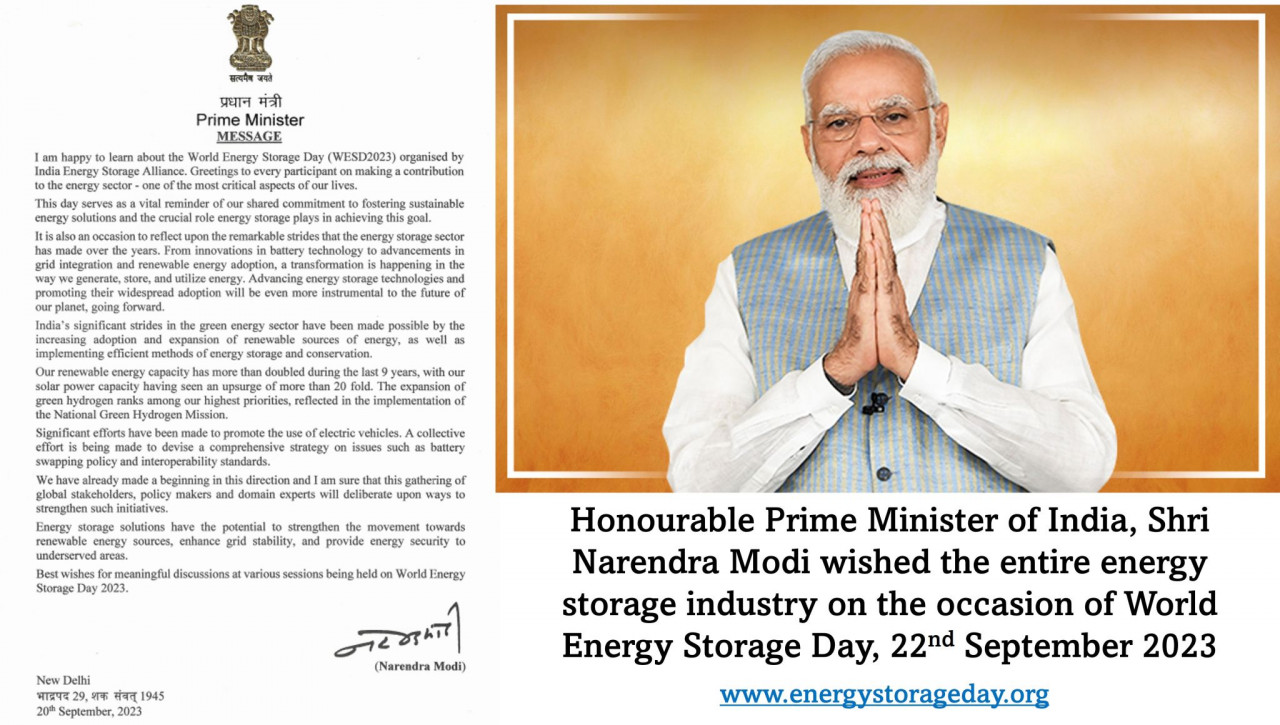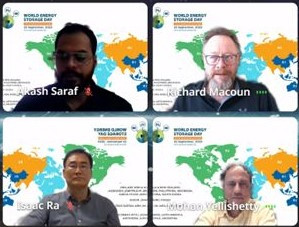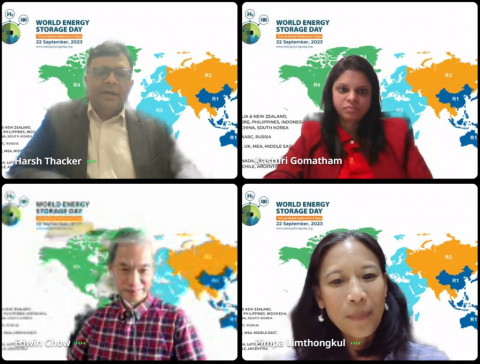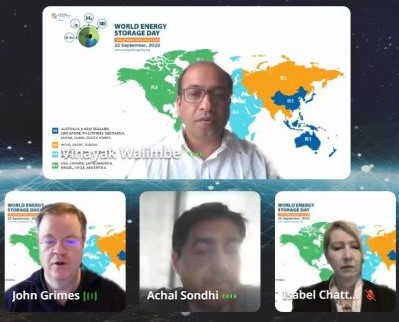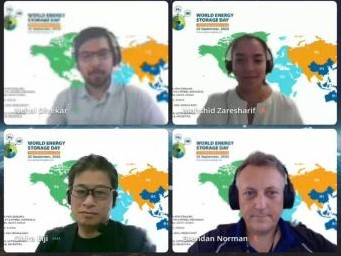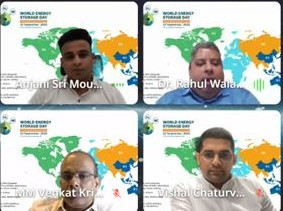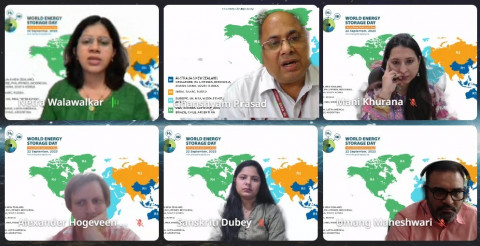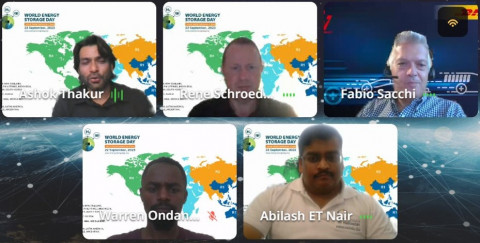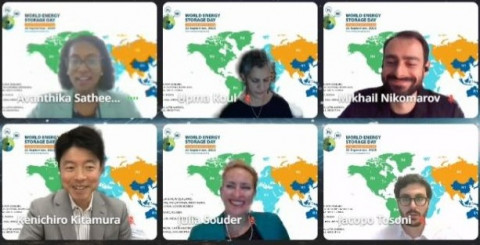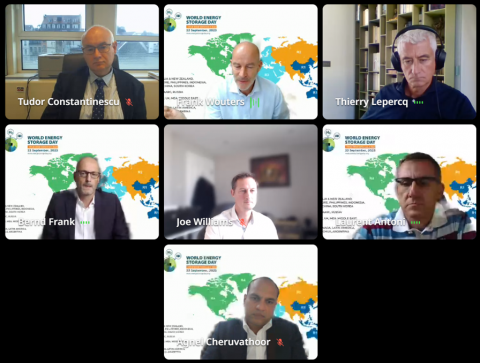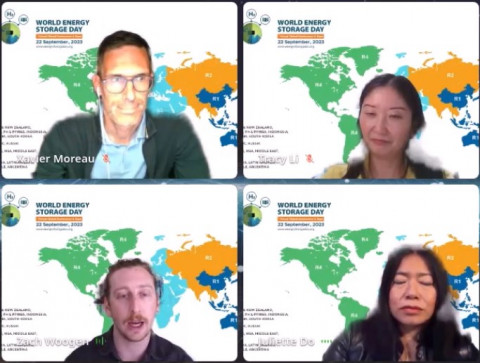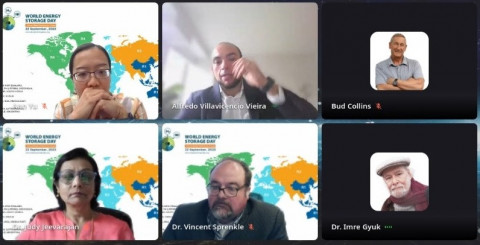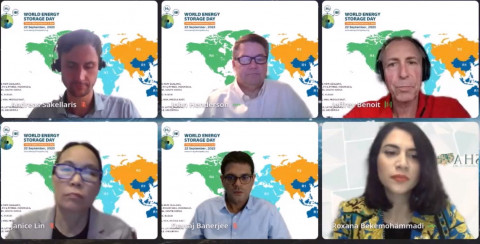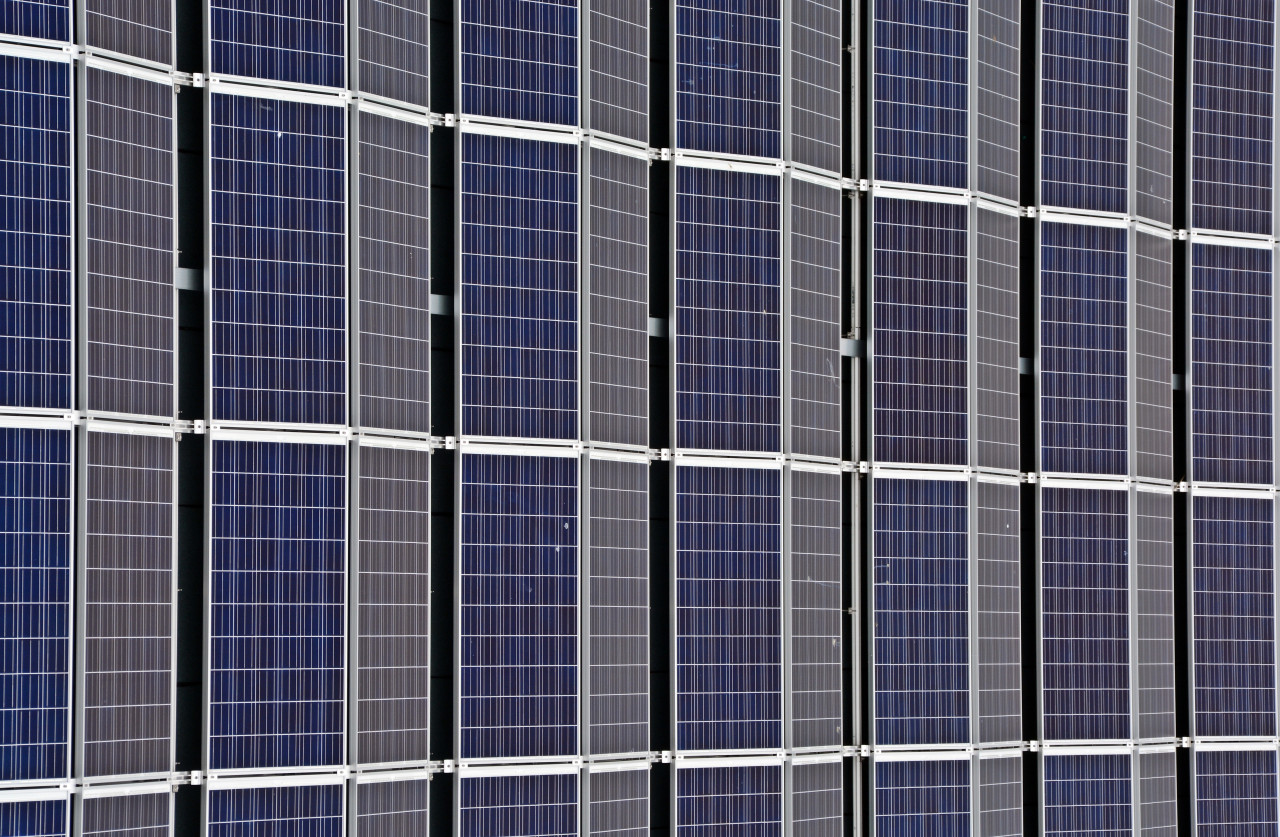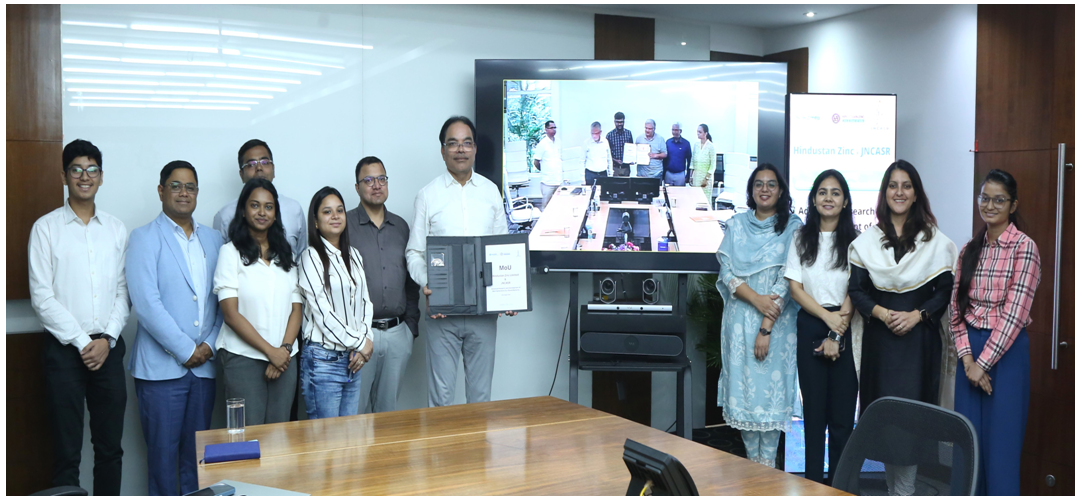WESD 2023 discoursed on clean energy tech adoption in global markets
The latest edition of World Energy Storage Day (WESD) global virtual conference and expo discoursed on the critical megatrends and innovations in clean energy technologies such as stationary energy storage, e-mobility, and green hydrogen, along with their respective manufacturing and supply chains, across global regions and markets, with attention to regional dynamics and progress at various levels.
The India Energy Storage Alliance (IESA) marked a significant milestone at the World Energy Storage Day (WESD) 2023 on September 22, by making the global virtual conference and expo one of the world's largest energy storage and green mobility platforms to discuss the progress and prospects of clean energy technologies in international markets.
The event registered the participation of over 3,000 clean energy technology experts, business stakeholders, policymakers, and members of academia hailing from over 70 countries, to take stock of the emerging, clean energy technologies and their commercial or large-scale adoption in four regions of the globe.
In his special message to WESD 2023, Prime Minister Narendra Modi termed the World Energy Storage Day as a vital reminder of a shared commitment towards sustainable energy solutions and the crucial role played by energy storage in realizing that commitment. "Energy storage solutions have the potential to strengthen the movement towards renewable energy sources, enhance grid stability, and provide energy security to undeserved areas", he said, while recollecting India's significant progress in fostering the green energy sector including efforts to promote the use of electric vehicles and implementation of the National Green Hydrogen Mission in the country.
The energy storage sector has made remarkable strides over the years. From innovations in battery technology to advancements in grid integration and renewable energy adoption, a transformation is happening in the way we generate, store, and utilize energy. Advancing energy storage technologies and promoting their widespread adoption will be even more instrumental to the future of our planet
Narendra Modi, Prime Minister of India
With a marathon 24-hour schedule comprising 16 sessions and 4 special sessions, the global conference explored diverse facets of the clean energy industry, including stationary energy storage, e-mobility, green hydrogen, and manufacturing and supply chain in all four global regions. The event served as a catalyst for bilateral trade, market development, research and innovation, while fostering international collaborations and sharing of best practices among leading companies and policymakers. The live sessions also featured interactive polls and Q&A to engage the audience on the themes of discussion.
The special sessions at the WESD this year included a special address by Earth Day Network on the theme 'Planet vs Plastics' and ESS Safety Stakeholder Consultation supported by the World Bank and Customized Energy Solutions (CES). A special session titled 'Energy Storage for 3X Renewable by 2030' was supported by the Global Renewables Alliance and LDES Council, with Dr. Judy Jeevarajan, Vice President and Executive Director, Electrochemical Safety Research Institute (ESRI), UL Research Institutes, as keynote speaker. The last special session, titled 'Skill Development and Capacity Building for Clean Energy Transition', was moderated by Dr. Rahul Walawalkar, President & MD, Customized Energy Solutions India & President, IESA, with a keynote address by Dr. Ashok Jhunjhunwala, Professor, IIT-Madras.
Yet another highlight of WESD 2023 was the 'Global Start-up Showcase 3.0', which offered a platform for innovative startups in the clean energy technology arena to pitch their ideas in front of global audience. Of the total 95+ applicants, 10 startups were selected to present in the closed-door virtual event. Based on the evaluation of a distinguished jury, top three contenders namely Aerostrovilos Energy, The Energy Company, and Livsense Technologies were declared as the winners of the startup challenge for this year.
Indian giga factories should scale to 150+ GWh annual capacity by end of 2030. IESA has set a vision to further scale this capacity to 500+ GWh by 2035 considering the demand growth for both stationary storage and e-mobility in India. Localizing manufacturing for critical components and equipment needed in battery manufacturing is the next big opportunity, considering that the developed markets such as US and Europe are looking for alternative supply chains
Dr. Rahul Walawalkar, Chair of WESD, and President of IESA
E-Mobility
Discussing the e-mobility adoption scenario and market trends in the Asia Pacific region, Kasturi Gomatham, Global Head of Battery Swapping (E-Mobility) at Shell plc, said "Battery swapping decouples certain critical links that inherently create bottlenecks for EV adoption. For instance, the concept decouples grid from that of the dynamic EV charging needs; decouples battery from the vehicle itself". Edwin Chow, Asia-Pacific Regional Sector Head, Auto and Engineering & Manufacturing, DHL, spoke on the importance of efficient and sustainable logistics and storage needs of the EV battery and battery energy storage manufacturing and supply chains in the region. Moderated by Harsh Thacker, Director & Analyst- Emerging Tech, Customized Energy Solutions, the session also saw Pimpa Limthongkul, President, Thailand Energy Storage Technology Association (TESTA) presenting on Thailand's EV adoption and manufacturing scenario, linking it to the country's net-zero strategy and '30@30' policy to achieve its EV goals.
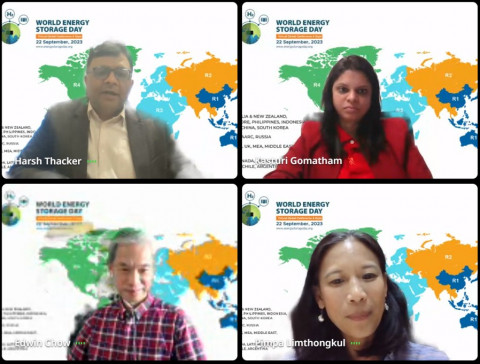
WESD 2023: Battery swapping, supply chain logistics in Asia Pacific
Stationary Energy Storage
Moderated by Vinayak Walimbe, Vice President, Emerging Technologies, Customized Energy Solutions, the session focused on the megatrends emerging in the energy storage sector across Asia Pacific. Isabel Chatterton, Director & Regional Industry Head, IFC, spoke on the lender's operations in this space while pointing out that Asia accounts for 25 percent of its infrastructure investments. Achal Sodhi, VP Growth- APAC, Fluence, while speaking on the growth of the sector, said "Five years ago, if a client came to us with a project for 5 MW, we'd say okay. Then, a few years ago, if the client wanted, 20 MW, I'd say Okay. But now, if a client comes with anything less than 50 MW, we're not interested". John Grimes, CEO, Smart Energy Council, touched upon the strong ramp-up of storage capacity in China and the possible implications of excess supply, while also speaking on certain groundbreaking projects coming up in Australia.
Green Hydrogen
Acknowledging Asia Pacific as a promising region for green hydrogen at the global level, the session saw Ohira Eiji, Director, NEDO, speak on the import of hydrogen via ports and explained Japan's $2 target for hydrogen vis-à-vis the US's plan for green hydrogen to cost $1 per kg within a decade, popularly known as '1-1-1'. Mahshid Zaresharif, Hydrogen Solutions Development Specialist, Siemens Energy, presented on hydrogen projects and governments' impetus in the region, while focusing on difficulties in achieving financial closure for some projects, explaining that large green hydrogen projects are still in early development stages. H2X co-founder and CEO Brendan Norman spoke on hydrogen fuel cells and emerging partnerships in this regard, while also touching on the advantages of hydrogen-fueled vehicles as against EVs. Nehal Divekar, Manager – Consulting of Emerging Technologies, CES, moderated the session.
On this World Energy Storage Day, let us commit to accelerating our efforts to increase renewable energy generation. As governments, businesses, industry associations we must join forces to invest in renewable infrastructure, offer incentives for clean energy adoption, and support R&D and innovation in energy storage
Amitabh Kant, G20 Sherpa, Government of India.
R2 (India, SAARC, Russia)
Manufacturing and Supply Chain
In this session, speakers presented their outlook on the emerging market opportunities and regulatory scenario on battery manufacturing supply chain in India. "Localizing manufacturing for critical components and equipment needed in battery manufacturing is the next big opportunity", opined Dr. Rahul Walawalkar, while noting that companies are making significant progress on their plans for gigafactories in the country. Vishal Chaturvedi, Business Head – Asset Management, Play Ops, Ola, spoke on three strategic reasons (factors) behind the mission to build battery cells in India, namely supply, cost, and technology. Dr. Hanif Qureshi, Joint Secretary, Department of Heavy Industry (DHI), observed that the global supply chain is in its infancy and warrants collaborative solutions. "Innovation and research and development are critical to improving supply chain efficiency, but investments must meet our technical objectives. The magnitude of this task transcends borders; teamwork is required", he noted. MM Venkata Krishna, CMO - ISBU, Amara Raja Batteries, spoke on the challenges faced in battery and ESS manufacturing and supply chain management and suggested strategic solutions to overcome them. Anjani Sri Mourya Sunkavalli, Founder & MD, Altmin, shared his viewpoints on the critical issues of battery materials sourcing in India.
E-Mobility
This session took stock of the Indian e-mobility experience so far, endorsing the market's positive outlook and emerging opportunities. "Electric vehicles are also good for economics, not just good for environment, from a fleet operator point of view with appreciable savings in fuel costs", said Anmol Jaggi, Founder - Blu Smart. Moderated by Gurusharan Dhillon, Director - eMobility Services, CES India, the session saw Jaggi and Anant Nahata, MD - Exicom Tele-Systems Ltd, calling for rationalization of taxation on EV charging equipment and charging services and a proper de-roll plan in place to phase out subsidies in a more streamlined manner. "India is witnessing a lot of in-house R&D to make the products more reliable and offer higher uptime. The current focus is to be on improving the reliability of chargers and enhance remote management and servicing of EV chargers", claimed Nahata. Speaking on EV manufacturing, Swapnil Jain, CTO, Ather Energy, opined that India is becoming a manufacturing hub for EVs, led by robust local manufacturing and innovative ecosystem. "Not just in terms of assembly, the country is spearheading innovation in the engineering and R&D front as well, especially in the E2W space, primarily led by the domestic demand", he added.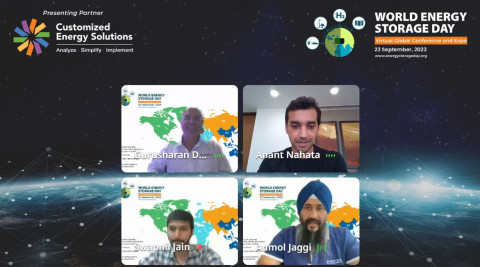
WESD 2023: Taking stock of e-mobility experience in India
Stationary Energy Storage
Appreciating India's approach towards energy storage and its market potential, this session moderated by Netra Walawalkar, Vice President at CES India, saw speakers sharing insights on the emerging trends and opportunities for standalone BESS in the country. Mani Khurana, Senior Energy Specialist at The World Bank, gave an overview of her institution's processes and upcoming projects in the battery energy storage space. Alexander Hogeveen Rutter, Private Sector Specialist at ISA, claimed that energy storage is now cheaper than coal power in most large economies, including India. "Indian consumers could save ₹42,000 crore a year if the country put renewables on a level playing field and pushed for solar and wind with energy storage instead of building coal plants", he said. Ghanshyam Prasad, Chairperson of Central Electricity Authority (CEA), Ministry of Power, pointed out that energy storage is becoming mandatory in the country's shift to renewables, and called on the emerging requirement for long-duration energy storage. Sanskriti Dubey, Senior Manager (Market Growth & Communications) at Fluence, took attendees through the journey of BESS projects in India and highlighted how storage was helping RE projects cross the finish line. Umang Maheshwari, Director, Solutions Deployment, The Global Energy Alliance for People and Planet, felt 'RE + battery' ES projects were a crucial aspect of ensuring reliable and continuous electricity to the masses. He took attendees through three of GEAPP's BESS projects, in India, Vietnam and Malawi in Africa.
Green Hydrogen
India needs manufacturing policies for electrolyzers alone, otherwise its hydrogen ambitions might falter, opined this WESD session on green hydrogen. Dr. Ranjit Pai, Scientist 'E'/Director, Technology Mission Division, DST, Government of India, introduced 'Hydrogen Valleys', their purposes and challenges, while Dr. K. Selvaraj, Senior Principal Scientist at CSIR – NCL, outlined the way to understand the energy system transition from carbon to hydrogen. IIT-Madras Prof. Aravind Kumar Chandiran focused on numbers, using NITI Aayog data to explain how hydrogen can help the country decarbonize its energy and industrial operations. Dr. Ajinkya Kamat, Innovation Fellow at IESA, touched upon the hydrogen value chain and the industries that must be considered when building H2 production and supply chain ecosystem. Moderated by Pawan Mulukutla, Director - Integrated Transport, Electric Mobility and Hydrogen at WRI India, the discussion session pointed out that the country has big plans with hydrogen, but there is a vast gap between these ambitions and the country's manufacturing capacities, thus calling for large-scale manufacturing, ramp-up of R&D activities and short-term offtake support through subsidies.
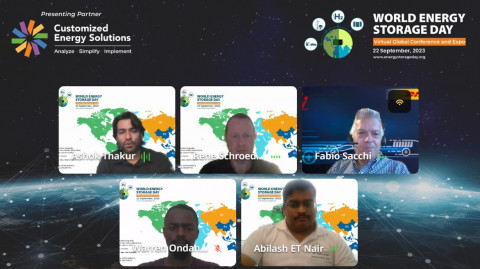
WESD 2023: EV battery manufacturing fast evolving in Europe; needs pro-active policy
R3 (Europe, UK, Middle East, Africa)
Manufacturing and Supply Chain
The session discussed broad ideas from lithium production in Africa to the battery cell manufacturing scenario in Europe and MENA, and the risks and opportunities for the European region in developing battery supply chains autonomy and reducing reliance on imports for critical materials. "A major upstream obstacle is the lack of critical minerals resources and downstream obstacles including incoherent policy on who owns the batteries and whose responsibility it is to recycle batteries after-life", said Phoebe O'Hara, Analyst, Battery Raw Materials, Fastmarkets.
Gery Bonduelle, Executive Vice President- Sales, Freyr, explained on value chain and addressing some of the vertical integration-related challenges through "partnership-based value-chain integrated strategy". Wouter IJzermans, Executive Director, BEPA emphasized on ramping up R&D innovation in battery chemistries for improving affordability of batteries made from abundantly available materials (such as sodium-ion). The discussion also saw Andrew Deadman, International R&D Partnership Manager, The Faraday Institution, declaring that li-ion batteries will be the main technology across mobility and stationary storage applications, while sodium-ion batteries will start gaining market share after 2030.
E-Mobility
Moderated by Ashok Thakur, Director - Customized Energy Solutions Europe, the session witnessed critical discussions on the e-mobility and battery manufacturing scenario of the Europe, the UK, the Middle East, African markets. Rene Schroeder, Director of Eurobat, said the demand for battery vehicles in the coming years, coupled with the push from the EU Green Deal would drive battery demand in the region. Sharing his experiences in building one of Europe's largest cell production, Lars Carlstrom, Founder and Executive Chairman, Italvolt, said that brownfield, fast and scalable go-to-market approach and technology licensing (of LFP chemistry for fast market entry) are the key tenets of his strategy. Abilash ET Nair, Head - Smart Mobility & Smart Buildings, Saeed & Mohammed Al Naboodah Group, spoke on the ethics of EV transition in Europe and the Middle East, while elucidating on the emerging EV and battery ecosystem in the latter region. Fabio Sacchi, VP EV Logistics Business and Commercial Development, DHL, presented on the logistics challenges faced by the EV and ESS industries, highlighting the commonality of challenges faced. Commenting on the EV scenario in the African region, Warren Ondanje, Managing Director, Africa E-Mobility Alliance, called for a series of policy goals involving time-bound incentives for industrialization, robust policy framework, and standards for safety and quality, to establish a conducive environment for EV adoption and manufacturing ecosystem in the continent.
The opportunities for battery cell manufacturing we see today are very interesting, but also risky. If we don't act right, fuel the battery initiatives, bring investments, and curate with supporting policies, we may lose the opportunity
Lars Carlstrom, Founder and Executive Chairman, Italvolt.
Green Hydrogen
Moderated by Frank Wouters, Senior VP, Reliance & Mena Hydrogen, this session identified the significant megatrends and factors behind the reshaping of hydrogen economy in the European region, with special attention to production and supply chain integration aided by the MENA region. The session featured a stellar lineup of speakers including Bernd Frank, Director of MKS Atotech, touching upon production technologies; Laurent Antoni, Executive Director, International Partnership for Hydrogen and Fuel Cells in the Economy (IPHE); Tudor Constantinescu, Principal Advisor - European Commission, who spoke on policy dynamics for clean hydrogen; Thierry Lepercq, President, HyDeal Ambition, Founder, Soladvent; Joe Williams, Director of Strategy and Communication, Green Hydrogen Organisation, and Agnel Cheruvathoor, Senior Sales Management, Sustainable Energy Systems/ Hydrogen, Siemens Energy. Other key aspects of discussion at the session include sustainable innovations for hydrogen production, hydrogen storage and transportation, and various use-case scenarios (industrial and mobility applications) for the immediate future.
This session highlighted the opportunities that span the entire battery value chain and the importance of decentralizing battery manufacturing in the Americas. Moderated by Dr. Rahul Walawalkar, President, IESA and Managing Director of CES India, the session acknowledged that the industry has matured and is growing exponentially, with a continued growth for the battery manufacturing industry in the R4 region. "While li-ion battery technology emerged as leader in this area, we are now seeing next-gen battery technologies with promise of disrupting the market," noted Dr. Walawalkar. The next phase of development involves tying government policies with actions, said Stephen Fernands, President, CES, adding that the question before everyone was to identify "What we can do to make energy storage a global enabler of energy transition.". Daniel Shapiro, representing the US Department of Energy's Office of Manufacturing and Energy Supply Chains (MESC), presented on the policy-side efforts for strengthening the current and forecasted battery supply chain landscape, along with critical actions to build a secure, resilient and diverse domestic energy supply chain. Vikram Handa, Managing Director of Epsilon Carbon Pvt Ltd, shed light on the journey of crafting customized products in the dynamic landscape of India and expanding on its business in the US. "As supply chains in India experience exponential growth, the demand for tailored solutions is on the rise. With opportunities blossoming in the USA through the Inflation Reduction Act, there's a captivating possibility of establishing a significant presence on both sides of the globe", Handa said.
Stationary Energy Storage
Moderated by Dr. Imre Gyuk, Chief Scientist (Energy Storage Research) at the US Department of Energy, this WESD session saw panelists agreeing that a host of energy storage technologies will find favour with countries and companies in the R4 (Americas) region. Gyuk opined that the ES industry did not face any technological barriers to LDES, but needed better payoffs to encourage investments. Alfredo Vieira, Evaluation Specialist, Climate Investment funds, argued that different chemistries served different purposes and that stakeholders setting up ES capacities will likely have to deploy a wide array of battery chemistries. Dr. Judy Jeevarajan, Vice President and Executive Director of Electrochemical Safety Research Institute (ESRI), UL Research Institutes, concurred to Vieira, adding that the lithium-ion chemistry was popular because of the convenience it afforded in charging up and deploying power, but a different, purpose-built chemistry could just as well take the baton. Speakers also touched upon was the dominance of lithium-ion chemistry, and the possibility of other chemistries receiving 'a shot at the market'.
Green Hydrogen
WESD's final session, concluding the marathon celebration, was moderated by Andreas Sakellaris, Director, Emerging Technologies East, Customized Energy Solutions. Among notable points, Janice Lin, Founder and President of the Green Hydrogen Coalition, posited on the importance of a very large offtaker and explained how green hydrogen served as an excellent seasonal storage facility for the USA, where a 100 percent renewables scenario showed a glut of power in spring and summer, and a scarcity in autumn and winter. Jeffery Benoit, VP, Clean Energy Solutions, Power Systems Manufacturing, explained that batteries can't be called 'load' solutions, and pitched for retrofitting gas turbines most of which can anyway work with a blend, allowing utilities to add hydrogen to the fuel mix. Others in the panel who shared their perspectives were John Henderson, Vice President, Doral Energy, Devraj Banerjee, Sr. Director, Ambient Fuels, and Roxana Bekemohammadi, Executive Director, US Hydrogen Alliance.
The article was collaboratively developed with contributions from Mandar Bhakre, Editor, ETN, and Shraddha Kakade, Asst. Editor, ETN.


